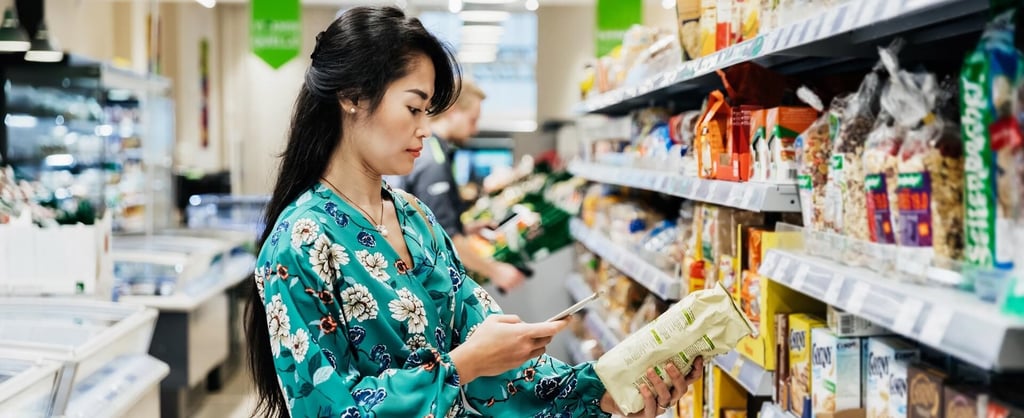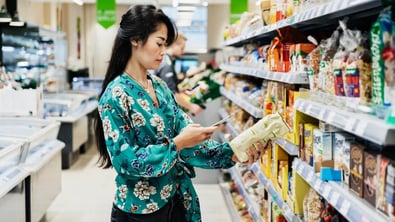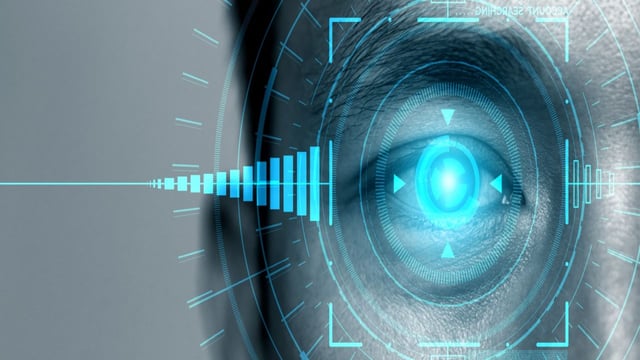Customer Challenge
Risk through a new lens
Documentation in the food supply chain is largely paper-based, making traceability difficult. By digitizing processes, data can be used to reduce food waste and improve traceability, therefore increasing consumer confidence in the food they purchase.
LRQA works with SecQuAL (Secure Quality Assured Logistics for Digital Food Ecosystems) - a consortium of 11 organizations which brings together experts across technology, software, food production, supply chain regulation and assurance – showcases how digitization and use of block chain technologies will enable food to be traced, tracked and monitored in real time. This will allow the entire food ecosystem to understand the provenance of products on a dramatically larger scale than current standards, which will greatly enhance the capability to manage risk.
The opportunity
Increasing consumer concerns surrounding food provenance, safety and waste mean that traceability and the ability to monitor the supply chain are key. Digitizing the food supply chain, combined with intuitive standards, can give consumers confidence in the quality and origins of the produce as well as help reduce food waste throughout.
However, the food supply chain – particularly for pork produce – is extremely complex. Due to the nature of the farm-to-fork process, it can be challenging to track a product in a supermarket back to a specific animal or farm. Compared to other sectors, the food supply chain is lagging behind, still relying on many paper-based processes.
How we helped
The SecQuAL consortium, led by independent quality assurance experts LRQA, will bring the farm-to-fork ecosystem into the digital age, thanks to pilot study being pioneered by the pork industry and a pioneering fresh produce partnership. Using smart labels and technologies in pork production, food will be able to be tracked and monitored in real-time, shelf-life more accurately predicted, and food waste reduced to help accurately calculate carbon footprint.
The use of physical hardware, including next-generation biosensing smart tags and associated devices, will simplify existing operational processes around pork packaging, inventory management, food safety and compliance monitoring, and logistics. Underlying blockchain-based data storage will also ensure information remains secure and unaltered.
In addition, the platform will also provide a tailored dashboard interface for members of the supply chain to access and analyze relevant data. This opens the door to a data-driven and predictive approach to risk assurance and management, allowing resource to be focussed to tackle the most prominent problems in supply chain.
How it works
The SecQuAL project began in 2021 and was awarded funding by the Made Smarter Innovation Challenge at UK Research and Innovation. Expected to complete by March 2023, the consortium looks to improve the performance of the food ecosystem to reduce waste and highlight inefficiencies within the supply chain.
SecQuAL is taking a two-pronged approach: putting technology at the heart of the farm-to-fork supply chain to create a digital food traceability system and using sensor technology to monitor product freshness.
Using blockchain technology, the traceability system will enable end-to-end tracking from farm to fork. Not only will this allow for easier access to the information for key supply chain stakeholders, it will also provide the ability for consumers to view the product’s journey and its source of origin to ultimately enhance consumer confidence. Inefficiencies such as delays and holding points will be identified to help reduce the produce’s carbon footprint, as well as remote regulatory oversight of supply chain practices achieved.
In addition, smart sensor technology printed on the label of the product will monitor product freshness by measuring gas levels inside the packaging, allowing for more accurate shelf-life prediction.
Leading the consortium, LRQA is providing cybersecurity risk management expertise to ensure that the digitalization of the supply chain is protected and its information remains safe. This involves LRQA monitoring the newly developed hardware and software technology to ensure that it produces reliable and valid data throughout the supply chain and that the hardware collecting the information is safe from cyber threats.
Ian Gardner, Senior Account Technology Leader for IBM – a fellow member of the SecQuAL consortium – explains: “The scale of the end-to-end supply chain and the volume of products moving through it, makes mapping the supply chain process critical to the success of the project. It is a fast-paced environment which runs 24/7. Digitizing this process puts data at its core, which means cyber security becomes critical to ensuring the reliability, validity and security of the process.”
The scale of the end-to-end supply chain and the volume of products moving through it, makes mapping the supply chain process critical to the success of the project.
Powerful results
The future
With the concept and technology identified, the SecQuAL project is now entering the proof-of-concept stage where the technology will be piloted in two different food supply chains – pork and fresh produce.
Martijn Sterkenburg, Digital Innovation Specialist at LRQA and SecQuAL Project Manager, explains: “The pilot demonstration phase will see the food ecosystem enter the digital age, bringing to life the benefits that digital technology can offer to the end-to-end supply chain. Delivering a cutting-edge technology into this complex network has never been done before, and we’re excited to uncover the results and learnings from this forward-thinking initiative.”
The pilot demonstration phase will see the food ecosystem enter the digital age, bringing to life the benefits that digital technology can offer to the end-to-end supply chain.


